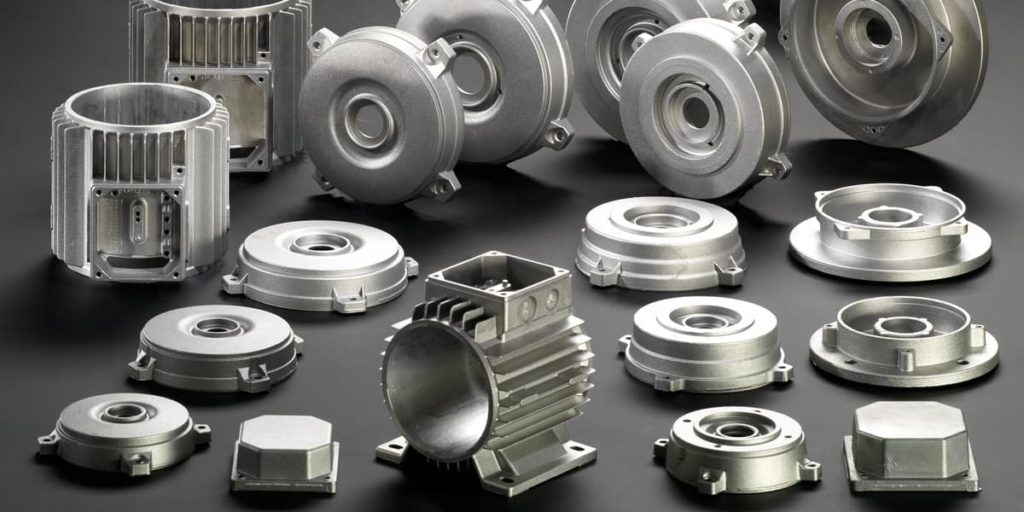The Necessary Uses Aluminum Foundry in Various Industries and Their Influence
Aluminum factories offer as a necessary source within various markets. Their long lasting and lightweight products substantially enhance efficiency in vehicle, aerospace, construction, and electronics industries. As each sector leverages light weight aluminum's one-of-a-kind buildings, they additionally add to sustainability efforts. This diverse influence motivates a much deeper exploration of how Aluminum formed these markets. What certain developments and advantages arise from its use?
Automotive Industry Applications
The automobile industry significantly relies upon Aluminum Foundry applications to boost car efficiency and effectiveness. Light weight aluminum's light-weight nature adds substantially to sustain economic climate, making it a recommended selection for producers intending to minimize discharges and improve total car dynamics. Elements such as engine blocks, transmission housings, and wheels are typically produced through Aluminum casting processes, permitting for detailed designs that satisfy rigorous safety and security and efficiency standards.

Aerospace Innovations

In addition, the use of aerospace-grade Aluminum alloys improves resistance to rust and fatigue, vital for the demanding environments airplane face. Technologies in additive manufacturing also allow for fast prototyping and modification of parts, minimizing preparations and expenses.
Building and Infrastructure
While the construction and facilities sectors proceed to advance, Aluminum shops are increasingly identified for their payments to modern-day structure methods. Aluminum's lightweight nature and high toughness make it a suitable material for numerous structural applications. Foundries supply components such as beams, structures, and frontages that enhance the longevity and longevity of buildings and facilities tasks.
Furthermore, light weight aluminum's deterioration resistance plays an important duty in expanding the life expectancy of structures exposed to severe environmental conditions. The energy performance of Aluminum products also lines up with lasting structure efforts, contributing to lower energy usage in construction. Additionally, innovative spreading methods have actually expanded the layout possibilities, permitting architects and designers to develop visually pleasing yet useful frameworks.
Electronic devices Manufacturing
Aluminum shops play a significant function in the electronics manufacturing industry, where the demand for thermally conductive and light-weight products is paramount. Aluminum Castings. Parts such as warmth sinks, coverings, and braces are often generated utilizing Aluminum due to its exceptional thermal residential or commercial properties and ability to dissipate warmth successfully. This is essential in electronic gadgets, where overheating can lead to failing and reduced efficiency
The flexibility of Aluminum enables for complex layouts and accurate machining, which are important in modern electronics. Furthermore, light weight aluminum's non-magnetic properties make it suitable for applications in delicate digital devices, decreasing interference. Additionally, aluminum's resistance to corrosion improves the toughness of look at more info digital components, making certain longevity and dependability.
Sustainability and Recycling Efforts
Offered the enhancing emphasis on ecological duty, the Aluminum Foundry market has actually made significant strides in sustainability and recycling initiatives. Aluminum is naturally recyclable, enabling foundries to redeem and recycle product with minimal energy expenditure contrasted to key manufacturing. This closed-loop recycling procedure not only decreases Aluminum Castings waste however also lowers greenhouse gas emissions, adding to a more sustainable production design.
Furthermore, many shops are adopting energy-efficient technologies, consisting of renewable resource sources, to power their operations (Wisconsin Aluminum Foundry). This shift not just reduces dependence on fossil gas yet also boosts overall operational performance
Sector partnerships are more advertising sustainable practices, such as sharing finest methods and creating cutting-edge recycling techniques. By focusing on these initiatives, the Aluminum Foundry sector is placing itself as a leader in lasting production, straightening with global targets for sustainability while meeting the needs of various industries.

Regularly Asked Concerns
What Are the Key Benefits of Using Aluminum in Foundry Processes?
The key advantages of using Aluminum in Foundry procedures include its light-weight nature, outstanding deterioration resistance, high thermal and electric conductivity, navigate here and convenience, permitting for detailed layouts and efficient recycling, eventually enhancing overall manufacturing performance and reducing costs. - Metal Castings
How Does Aluminum Foundry Impact Item Lifecycle Monitoring?
Aluminum Foundry greatly boosts product lifecycle management by making it possible for reliable product use, reducing waste, and promoting recycling. Its light-weight residential or commercial properties enhance transport performance, while durability expands product life expectancy, eventually adding to sustainability and cost-effectiveness in manufacturing.
Exist Certain Difficulties in Aluminum Foundry Production?
Details challenges in Aluminum Foundry manufacturing include taking care of temperature control, guaranteeing worldly high quality, minimizing waste, and adapting to rising and fall market needs. These aspects can influence performance, price, and total competition within the sector.
What Security Procedures Are Important in Aluminum Foundry Workflow?
Essential precaution in Aluminum Foundry operations include individual safety tools, correct ventilation, normal equipment upkeep, danger interaction, and emergency situation reaction training. Applying these practices assurances worker security and lessens risks connected with high-temperature steel handling.
How Does the Expense of Aluminum Contrast to Various Other Steels in Foundry Usage?
The cost of Aluminum is typically reduced than that of metals like copper and titanium, making it a cost-efficient option for many Foundry applications. This cost adds to its extensive usage across numerous sectors.
Aluminum factories offer as a crucial resource within many industries. The vehicle market increasingly relies on Aluminum Foundry applications to improve lorry efficiency and performance. The product's recyclability additionally lines up with the market's push in the direction of sustainability, as recycled Aluminum requires significantly much less energy to procedure contrasted to key aluminum. Aluminum factories play a significant function in the electronic devices producing market, where the need for lightweight and thermally conductive products is extremely important. Provided the enhancing emphasis on environmental responsibility, the Aluminum Foundry market has made significant strides in sustainability and recycling initiatives.